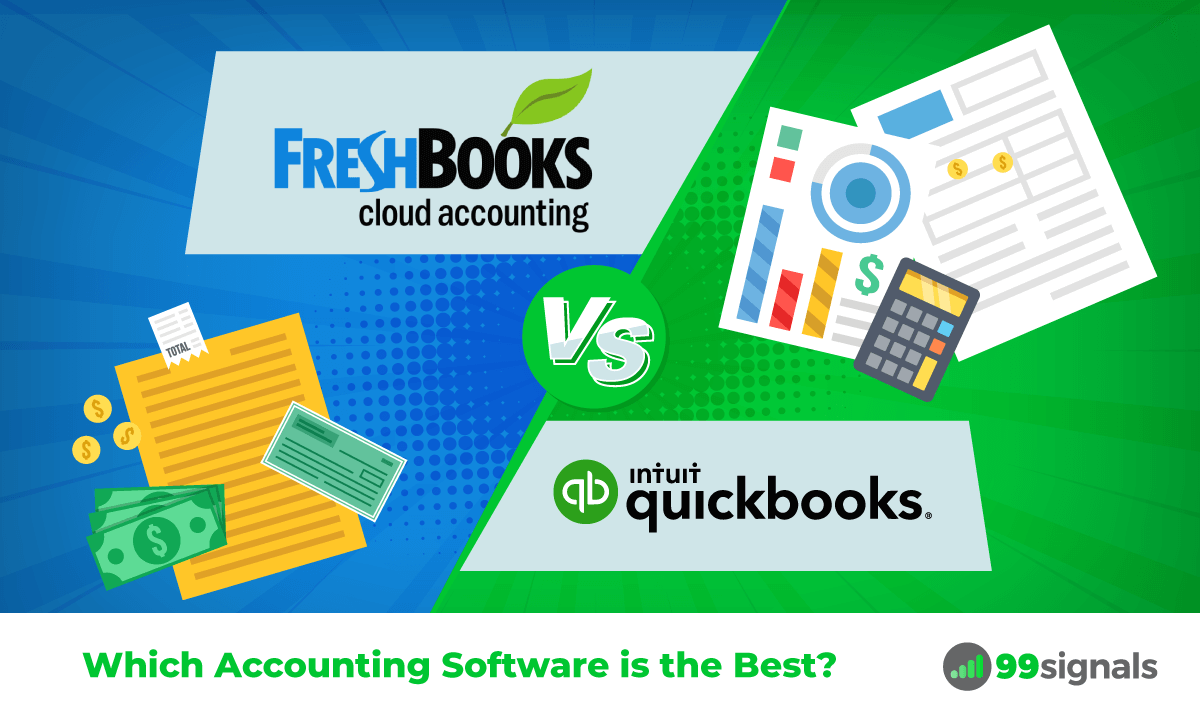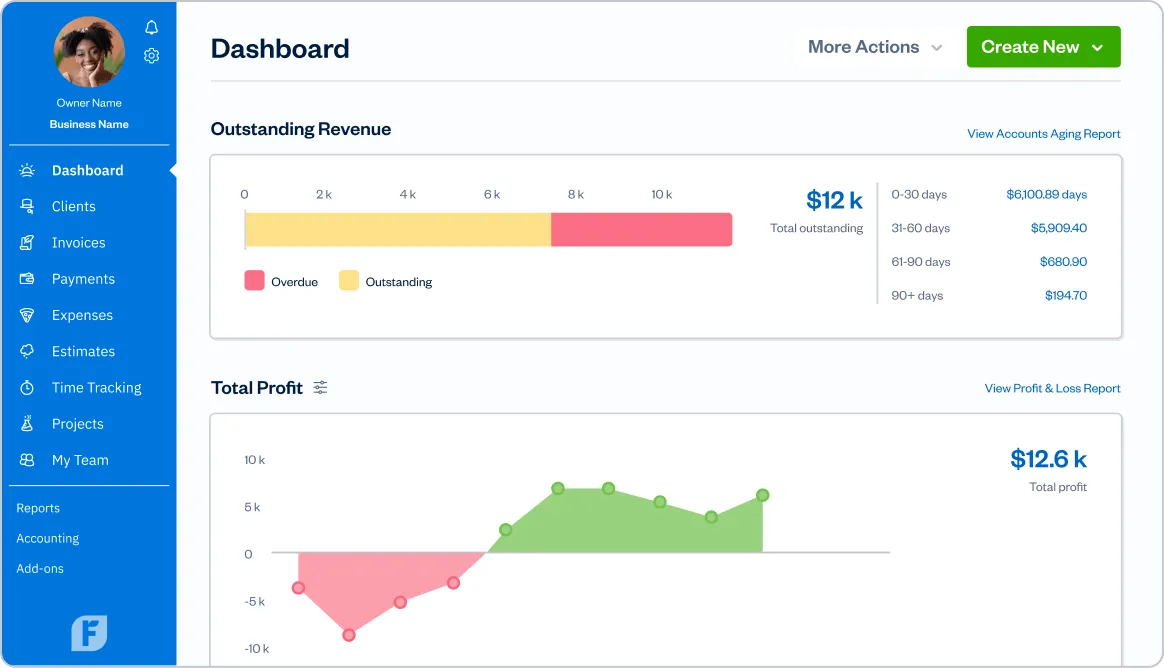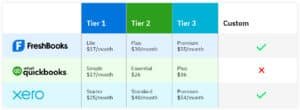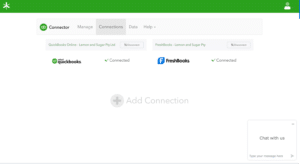Choosing the right accounting software for your business is crucial. FreshBooks and QuickBooks are two popular options.
But which one suits your needs? Comparing FreshBooks and QuickBooks helps you make an informed decision. Both offer robust features, but they serve different purposes. FreshBooks is tailored for freelancers and small businesses. It focuses on invoicing and time tracking.
QuickBooks, on the other hand, is a comprehensive solution. It caters to larger businesses with advanced accounting needs. Understanding their differences can save you time and money. This guide will break down their features, pricing, and ease of use. By the end, you’ll know which software aligns with your business goals. Stay tuned for a detailed comparison.

Credit: www.99signals.com
Features Comparison
Choosing the right accounting software can be challenging. Freshbooks and Quickbooks are two popular options. Both offer unique features to help businesses manage their finances. Let’s compare their features to help you decide which one is best for you.
Invoicing Capabilities
Both Freshbooks and Quickbooks excel in invoicing capabilities. Freshbooks allows you to create professional invoices easily. You can also customize them to match your brand. Quickbooks also offers strong invoicing features. It allows you to automate recurring invoices, which saves time.
- Freshbooks: Customizable invoices, easy to use, supports multiple currencies.
- Quickbooks: Automated recurring invoices, detailed tracking, integration with other apps.
Expense Tracking
Tracking expenses is crucial for any business. Freshbooks and Quickbooks provide robust expense tracking features. Freshbooks allows you to snap photos of receipts and categorize expenses. Quickbooks offers similar features. It also automatically syncs with your bank accounts.
- Freshbooks: Receipt capture, expense categorization, real-time updates.
- Quickbooks: Bank syncing, receipt storage, detailed expense reports.
Time Tracking
Both platforms offer excellent time tracking tools. Freshbooks has a built-in timer that tracks billable hours. Quickbooks also includes time tracking. It integrates well with payroll and invoicing.
- Freshbooks: Built-in timer, billable hours tracking, integration with invoicing.
- Quickbooks: Time tracking, payroll integration, detailed time reports.
Project Management
Project management helps keep tasks organized. Freshbooks includes project management tools to track progress and collaborate with team members. Quickbooks offers project tracking features. It helps you monitor project profitability.
- Freshbooks: Task management, team collaboration, project tracking.
- Quickbooks: Project profitability tracking, task assignment, integration with other features.
Overall, both Freshbooks and Quickbooks offer a wide range of features. Your choice depends on your specific business needs.
Ease Of Use
In the battle between FreshBooks and QuickBooks, ease of use can be a game changer. Both platforms aim to simplify accounting tasks. But how user-friendly are they? Let’s break it down.
User Interface
FreshBooks boasts a clean and modern interface. It focuses on simplicity and ease of navigation. Users can quickly find essential features. The dashboard displays key metrics in a straightforward manner.
QuickBooks has a more traditional interface. It’s packed with features but can seem cluttered. The dashboard offers a comprehensive overview. Yet, it may feel overwhelming for first-time users.
| Feature | FreshBooks | QuickBooks |
|---|---|---|
| Dashboard | Simple, clean | Comprehensive, dense |
| Navigation | Easy to navigate | More complex |
Learning Curve
FreshBooks is designed for small businesses and freelancers. Its intuitive layout means less time spent learning. Users can master basic functions quickly. Tutorials and guides are readily available.
QuickBooks offers more advanced features. This makes it powerful but harder to learn. Users might need more time to get comfortable. Training resources are extensive but may feel overwhelming.
- FreshBooks: Faster learning, ideal for beginners
- QuickBooks: Steeper learning curve, more advanced features
Customer Support
FreshBooks is known for excellent customer support. Users praise its responsive and helpful support team. Live chat, phone support, and email options are available. The support team is known for quick resolutions.
QuickBooks also offers robust customer support. Yet, some users report longer wait times. Support is available through phone, chat, and email. The help center is comprehensive but can be overwhelming.
| Support Feature | FreshBooks | QuickBooks |
|---|---|---|
| Availability | Live chat, phone, email | Phone, chat, email |
| Response Time | Quick | Varies |
Pricing And Plans
Choosing the right accounting software can be challenging. Freshbooks and Quickbooks are two popular options. Understanding their pricing and plans is crucial. Let’s dive into the details.
Pricing Tiers
Both Freshbooks and Quickbooks offer different pricing tiers. These tiers cater to various business sizes and needs.
| Software | Basic Plan | Mid-Tier Plan | Premium Plan |
|---|---|---|---|
| Freshbooks | $15/month | $25/month | $50/month |
| Quickbooks | $25/month | $50/month | $80/month |
Freshbooks offers a Lite plan at $15/month, Plus plan at $25/month, and Premium plan at $50/month. Quickbooks, on the other hand, starts with a Simple Start plan at $25/month, Essentials plan at $50/month, and Plus plan at $80/month.
Free Trials
Both Freshbooks and Quickbooks provide free trials. These trials allow users to test the software before committing.
- Freshbooks: 30-day free trial
- Quickbooks: 30-day free trial
With these free trials, users can explore the features and decide which software fits their needs better.
Value For Money
When assessing value for money, consider the features you get at each pricing tier.
- Freshbooks offers an affordable starting plan at $15/month.
- Quickbooks provides more advanced features in higher tiers.
- Both platforms offer good customer support and integration options.
Freshbooks is ideal for small businesses and freelancers. Quickbooks suits larger businesses needing more advanced features. Evaluating your business needs will help you choose the right software.

Credit: www.reconcile.ly
Integrations
Integrations are essential for any accounting software. They allow users to connect with various tools and services. This enhances functionality and streamlines tasks. Both Freshbooks and Quickbooks offer robust integration options. But how do they compare?
Third-party Apps
Both Freshbooks and Quickbooks connect with numerous third-party apps. These integrations help users manage their business more efficiently.
- Freshbooks: Integrates with over 100 apps. Popular choices include G Suite, Slack, and Trello.
- Quickbooks: Offers over 650 integrations. Popular choices include Shopify, TSheets, and HubSpot.
With more options, Quickbooks might be better for businesses needing specific tools. Freshbooks still covers many essential apps.
Payment Gateways
Payment gateways are crucial for invoicing and receiving payments. Both Freshbooks and Quickbooks support multiple payment gateways.
- Freshbooks: Supports Stripe, PayPal, and WePay.
- Quickbooks: Integrates with Stripe, PayPal, Square, and more.
Quickbooks offers a broader range of payment gateway integrations. This could be beneficial for businesses with diverse payment needs.
Other Software
Integrating with other software can help manage various business functions. Both Freshbooks and Quickbooks provide integrations with different software.
- Freshbooks: Connects with Zapier, Mailchimp, and Zoom.
- Quickbooks: Works with Microsoft Office, Salesforce, and Mailchimp.
Quickbooks offers more extensive software integrations. But Freshbooks still provides valuable connections for many businesses.
In summary, Quickbooks offers more integration options than Freshbooks. But Freshbooks covers many essential apps and services. Choose the software that best fits your business needs.
Mobile Accessibility
In today’s fast-paced world, mobile accessibility is crucial for business owners and professionals. Having access to your financial data on the go can make a significant difference in productivity. This section will explore the mobile capabilities of FreshBooks and QuickBooks, helping you understand which platform offers the best experience on your mobile device.
Mobile Apps
Both FreshBooks and QuickBooks provide dedicated mobile apps. These apps allow users to manage their finances from anywhere. Let’s take a closer look at the mobile apps offered by each platform:
| Feature | FreshBooks Mobile App | QuickBooks Mobile App |
|---|---|---|
| Platform Availability | iOS, Android | iOS, Android |
| User Interface | Intuitive and user-friendly | Clean and easy to navigate |
| Functionality | Comprehensive | Robust |
Feature Availability On Mobile
Both apps offer a range of features, but there are differences in what you can do on the go:
- FreshBooks: Time tracking, invoicing, expense management, client communication.
- QuickBooks: Expense tracking, invoicing, mileage tracking, sales receipt generation.
FreshBooks focuses on client communication and time tracking. QuickBooks excels at mileage tracking and sales receipts. Both apps cover essential accounting needs.
Usability On The Go
Both FreshBooks and QuickBooks have designed their mobile apps with usability in mind. FreshBooks offers an intuitive interface that makes navigation simple. Users find it easy to track time, send invoices, and manage expenses.
QuickBooks, on the other hand, provides a clean and straightforward interface. This makes it easy for users to track expenses, generate sales receipts, and manage their accounts on the go.
In terms of usability, both apps provide a seamless experience. They ensure that users can perform necessary tasks efficiently while away from their desks.

Credit: www.freshbooks.com
User Reviews And Feedback
Choosing the right accounting software can be tough. Freshbooks and Quickbooks are popular choices. Let’s dive into user reviews and feedback for both.
Customer Satisfaction
Both Freshbooks and Quickbooks have their fans. Freshbooks users praise its ease of use. Many say it is simple and intuitive. Quickbooks users appreciate its robust features. They find it comprehensive for business needs.
Here is a quick look at customer satisfaction:
| Feature | Freshbooks | Quickbooks |
|---|---|---|
| Ease of Use | High | Moderate |
| Customer Support | Positive | Mixed |
| Feature Richness | Moderate | High |
Common Complaints
No software is perfect. Users have some common complaints about both. Freshbooks users often mention limited features. Advanced users may find it lacking. Quickbooks users report a steep learning curve. It can be hard to navigate for beginners.
Here are some common complaints:
- Freshbooks: Limited reports and integrations
- Quickbooks: Complexity and customer support issues
Overall Ratings
Overall ratings help gauge user satisfaction. Freshbooks typically receives high marks for simplicity. Quickbooks scores well for functionality. Both have their strengths and weaknesses.
Here are some overall ratings:
| Platform | Overall Rating |
|---|---|
| Freshbooks | 4.5/5 |
| Quickbooks | 4.2/5 |
Choosing between Freshbooks and Quickbooks depends on your needs. Both have their pros and cons. Consider user reviews and feedback to make an informed decision.
Frequently Asked Questions
What Are The Key Differences Between Freshbooks And Quickbooks?
Freshbooks is ideal for freelancers and small businesses. Quickbooks offers more robust accounting features for larger businesses. Freshbooks focuses on ease of use. Quickbooks provides advanced reporting and inventory management. Both have different pricing plans and integrations.
Which Is More User-friendly, Freshbooks Or Quickbooks?
Freshbooks is generally considered more user-friendly. Its interface is intuitive and straightforward. Quickbooks has a steeper learning curve. However, Quickbooks offers more advanced features for experienced users.
Can Freshbooks And Quickbooks Handle Invoicing?
Yes, both Freshbooks and Quickbooks handle invoicing efficiently. Freshbooks offers customizable and straightforward invoicing. Quickbooks provides more advanced invoicing features. Both platforms support automated reminders and recurring invoices.
Do Freshbooks And Quickbooks Offer Mobile Apps?
Yes, both Freshbooks and Quickbooks offer mobile apps. Freshbooks’ app is user-friendly and great for on-the-go invoicing. Quickbooks’ app provides comprehensive accounting features. Both apps are available for iOS and Android.
Conclusion
Choosing between FreshBooks and QuickBooks depends on your business needs. FreshBooks offers simplicity and great invoicing features. QuickBooks provides robust accounting tools for larger businesses. Both have their strengths. Consider your specific requirements carefully. Evaluate your budget and feature preferences.
Trial versions can help you decide. Ultimately, both are excellent choices for managing finances. Select the one that fits your workflow best. Proper accounting is crucial for business success. Make an informed decision to support your financial goals.






